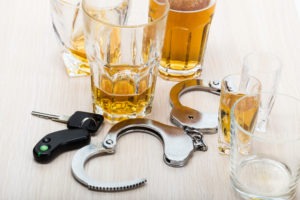
An Administrative License Revocation (ALR) hearing determines if a person’s driver’s license should be suspended due to either failing or refusing a breath or blood test with a DWI (driving while intoxicated) arrest. The duration of an ALR hearing can vary depending on several variables, including the case’s complexity, whether witnesses testify, and other factors.
It’s not uncommon for ALR hearings to last an hour or longer, depending on the various issues involved. Regardless, it’s important to prepare for a long hearing. You can hire a Houston DWI lawyer to represent you, protect your rights, and seek a favorable outcome.
Factors That Influence the Duration of an ALR Hearing
If authorities arrested you on a DWI charge in Texas, you’ve likely either (1) refused to take a Breathalyzer test or (2) determined to have a blood alcohol concentration (BAC) of 0.08% or above. If you request an ALR hearing, you are attempting to keep your driver’s license because the state will automatically suspend it within 40 days if you don’t request a hearing within 15 days. You can request a hearing by mail, phone, or online.
A DWI case’s overall complexity, such as that involving contested evidence or complex legal arguments or issues, may extend the time it takes to complete an ALR hearing. The length of the hearing may also depend on how quickly the judge administers the case.
Other factors that can affect the duration of a proceeding include the following:
- Witnesses and testimony: If one or more witnesses testify, it can extend the duration of your ALR hearing. Each witness’s testimony may need to be heard and cross-examined, which can make the overall process longer.
- Evidence presentation: Documentary evidence such as police reports and Breathalyzer test information can affect the duration of the ALR hearing. Objections regarding the evidence’s admissibility, relevance, or validity may warrant extra time for arguments and rulings.
- Contested issues: If multiple issues are contested, this can also affect the hearing’s duration. These issues may involve their pieces of evidence and witnesses, and the hearing may take longer to complete. However, issues resolved before the hearing should not affect its length.
- Legal arguments and discussions: The hearing’s lawyers may present legal arguments, cite case law, and engage in discussions with the judge. These interactions can also affect the hearing’s duration, especially if there are opposing interpretations or agreements of the law.
For a legal consultation, call (713) 225-1900
How Can You Be Successful at an ALR Hearing?
The State of Texas will attempt to convince the judge to suspend or revoke your driver’s license at an ALR hearing. Your attorney can defend you against this action. To determine whether you should keep your driving privileges, the presiding judge will consider all the evidence the opposing sides provide. Fortunately, you can challenge an unfavorable ruling made at this hearing.
After your arrest, you should consider hiring a Texas DWI attorney to represent you in court as soon as possible. An ALR hearing is distinct from your criminal DWI case, and even if the charges are dropped, failing to refute the state’s evidence in the hearing could result in license suspension or revocation.
Remember, it is the state’s responsibility to prove why it wants to revoke your license, and your lawyer can fervently refute any evidence it presents. For instance, they might be able to show that the arresting officer lacked both probable cause and a good reason to pull you over. These two key arguments against the state’s proof could help you prevail at an ALR hearing.
Of note, you do not have to attend the ALR hearing, and in some cases, it may not be in your best interests. For example, civil prosecutors could call you as a witness, put you on the stand, and ask questions that could incriminate you.
How Can a Lawyer Fight Your DWI?
While every DWI case is different and requires a unique approach, most defense attorneys fight DWI convictions by making use of the following strategies:
- Providing representation at the ALR hearing to preserve your driving privileges
- Identifying any constitutional rights violations, such as an improper search and seizure of your person, property, and vehicle
- Challenging field sobriety, breath, and blood tests
- Contesting the results of Texas’ Drug Recognition Expert program
- Requesting that the court exclude witness testimony or evidence that could be detrimental to the case.
- Challenging witness testimony and using police reports to collect vital information and question the recollections of law enforcement.
If you have an attorney, they will assess your case and may offer a defense, such as:
- The arresting officer(s) did not have probable cause to pull you over.
- The arresting officer(s) did not ask you to undergo a breath or blood test.
- If you took the test, the results were inaccurate, or you did not consent.
- The test was not administered correctly.
- The state’s documentation was in error.
Unfortunately, if you receive a favorable outcome at your civil ALR hearing and can retain your driving privileges, this may not be upheld in your penal case. For this reason and others, you should strongly consider having an attorney handle your criminal charges.
Click to contact our Houston lawyer today
Contact Blass Law Today to Learn More About an ALR Hearing in Texas
If you have been arrested on a DWI charge in Texas and facing an ALR hearing, having a criminal defense attorney on your side is essential to help you navigate the legal process, safeguard your rights and fight to have your case dismissed. Contact Blass Law today for a confidential consultation and to learn more about how Jay Blass Cohen and his team can assist you.
Call or text (713) 225-1900 or complete a Case Evaluation form


